Kill the Bill protest: More than 1,000 attend fifth Bristol demo
- Published
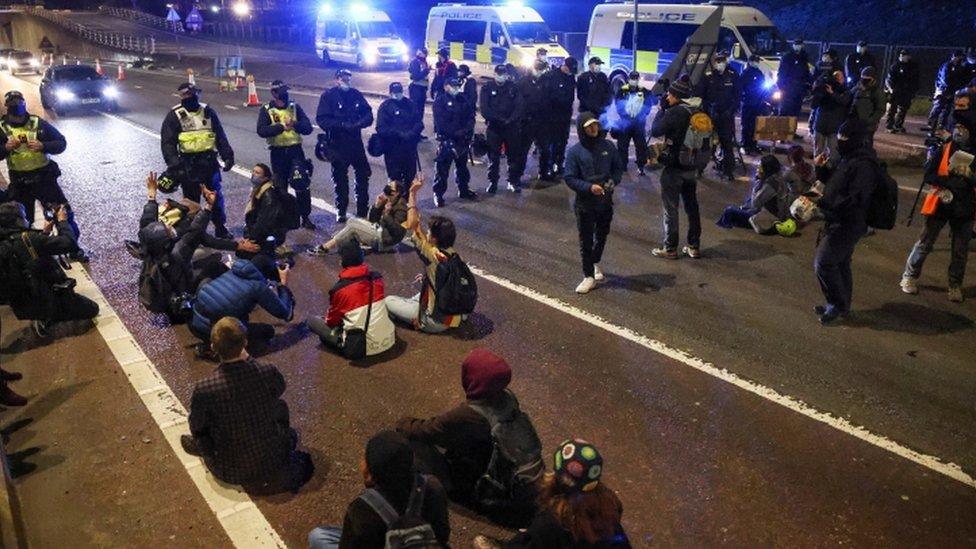
About 100 people marched from the city centre to the M32 at about 21:30
Protesters blocked the entrance to a motorway as part of Bristol's fifth Kill the Bill protest in less than a fortnight.
About 100 people marched from the city centre to the M32, briefly blocking the carriageway before heading back.
Police said it closed it to inbound traffic at junction 3 at about 21:30 BST for safety reasons.
More than 1,000 people had attended a "peaceful" march through the city centre earlier on Saturday.
It was held to oppose the government's Police and Crime Bill.
Allow X content?
This article contains content provided by X. We ask for your permission before anything is loaded, as they may be using cookies and other technologies. You may want to read X’s cookie policy, external and privacy policy, external before accepting. To view this content choose ‘accept and continue’.
Avon and Somerset Police said officers had sought to "engage with protesters" and to ensure the demonstration took place peacefully.
The force "urged" people to "consider alternative ways" of protesting "given that we're still in the midst of the pandemic".
Protesters performed a flash mob at College Green with an effigy of Home Secretary Priti Patel ahead of the protest moving across the city from about 16:30 BST.
BBC Radio Bristol's Pete Simson, who attended the afternoon's protest, said there was a "festival vibe" at College Green and that it had been "very good natured".
About 500 people remained near the city's Cenotaph at about 19:00 following the conclusion of a "peaceful march", police said.
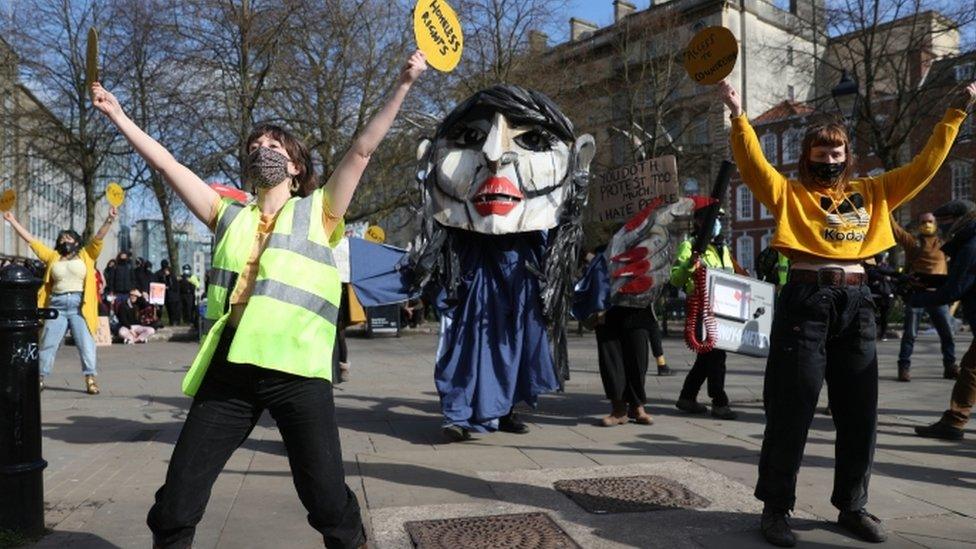
The protest was the fifth held in Bristol to oppose the government's Police and Crime Bill in less than a fortnight
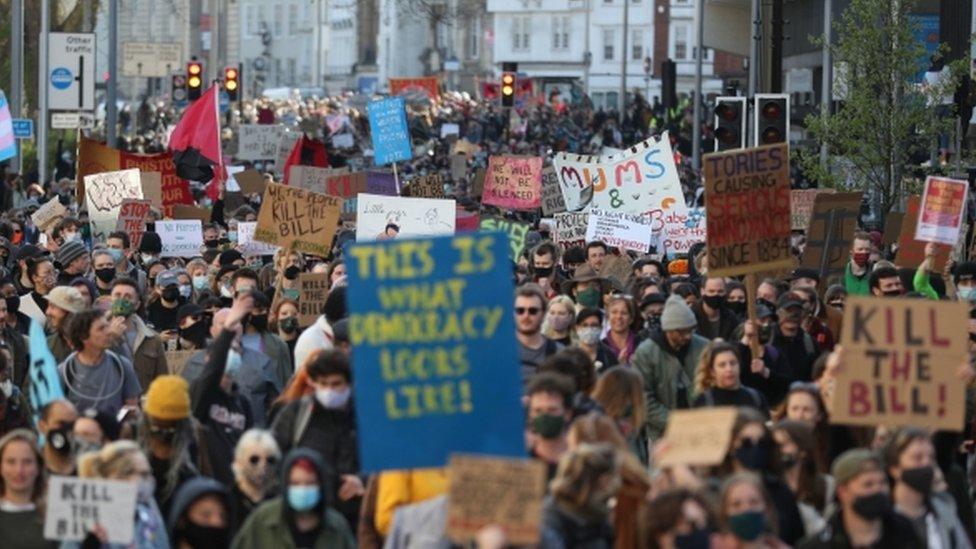
Avon and Somerset Police had asked people to "consider alternative ways" of protesting because of the pandemic
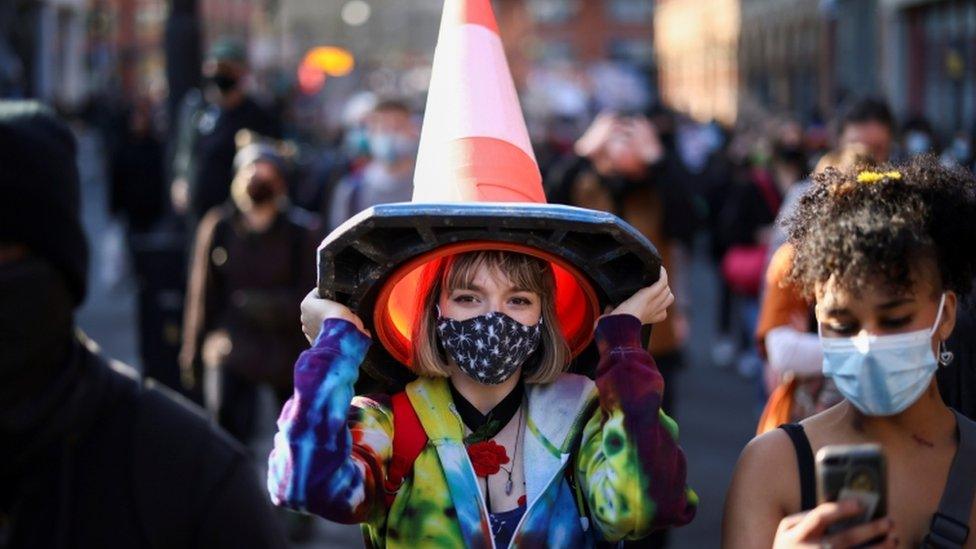
Police described the march through the city as "peaceful"
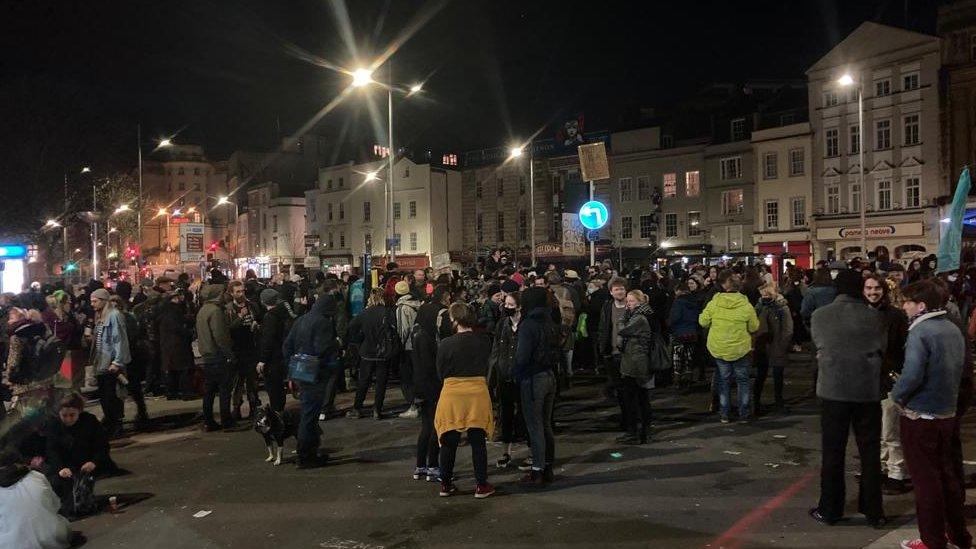
Hundreds of people remained in the city centre at about 21:00
Thousands of people attended the first protest opposing the Police and Crime Bill on 21 March, which ended with a riot in the city centre and several police officers injured.
Fireworks were set off in the crowd, while demonstrators scaled Bridewell Police Station and daubed graffiti on walls.
The second, on 23 March, saw 14 people arrested. Police said it had "the making of a rave or a party rather than a protest".
Another 10 people were arrested following scuffles during the third protest on 26 March, with glass bottles and bricks thrown at police. A police horse was covered in paint.
The fourth protest passed off peacefully on 30 March, the first to be held in the city under new rules for lockdown easing.
Allow X content?
This article contains content provided by X. We ask for your permission before anything is loaded, as they may be using cookies and other technologies. You may want to read X’s cookie policy, external and privacy policy, external before accepting. To view this content choose ‘accept and continue’.
Several other Kill the Bill protests have been held across England, including in London, Newcastle, Birmingham and Liverpool.
Related topics
- Published3 April 2021
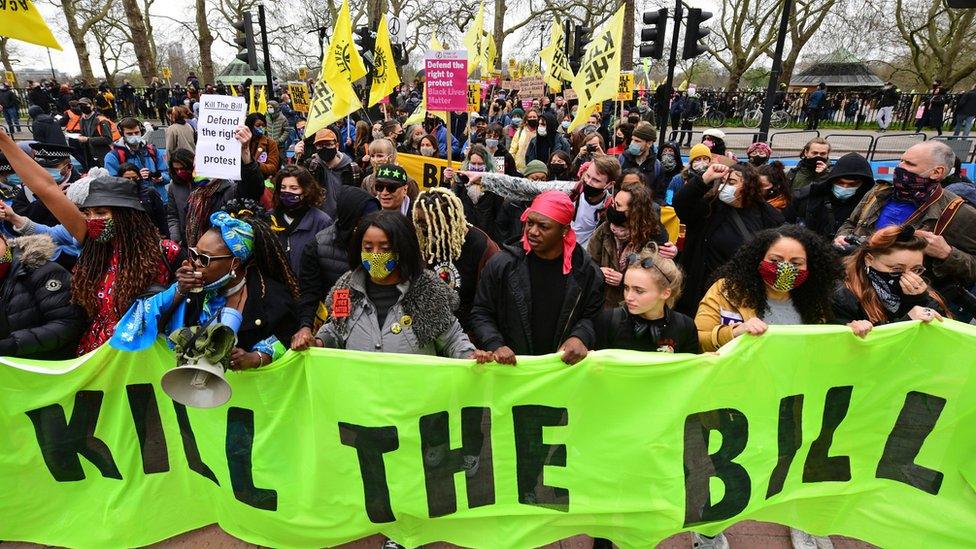
- Published31 March 2021
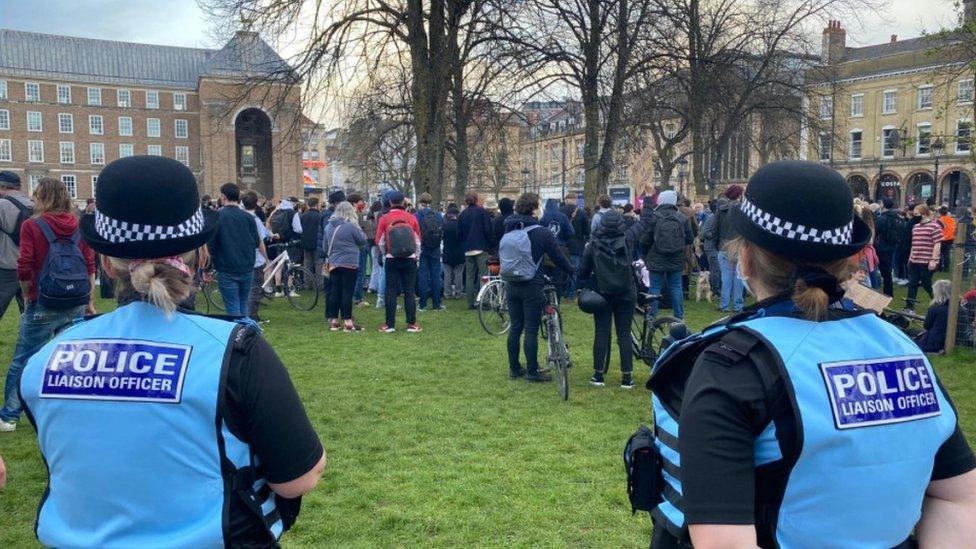
- Published30 March 2021
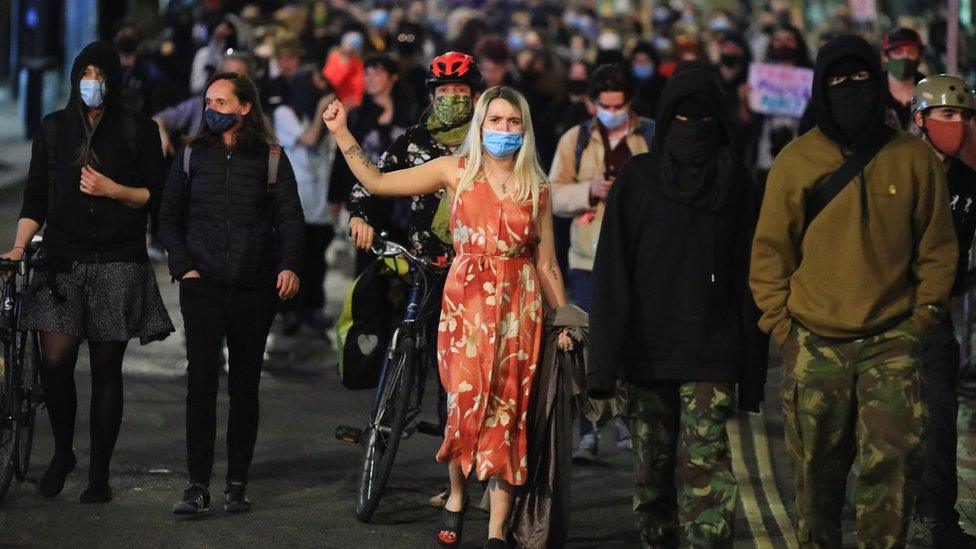
- Published27 March 2021
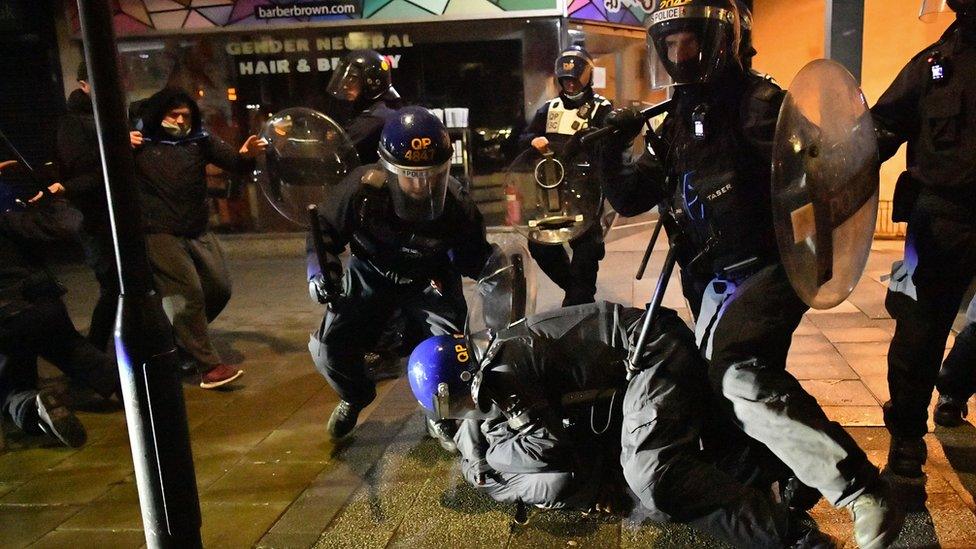
- Published27 March 2021
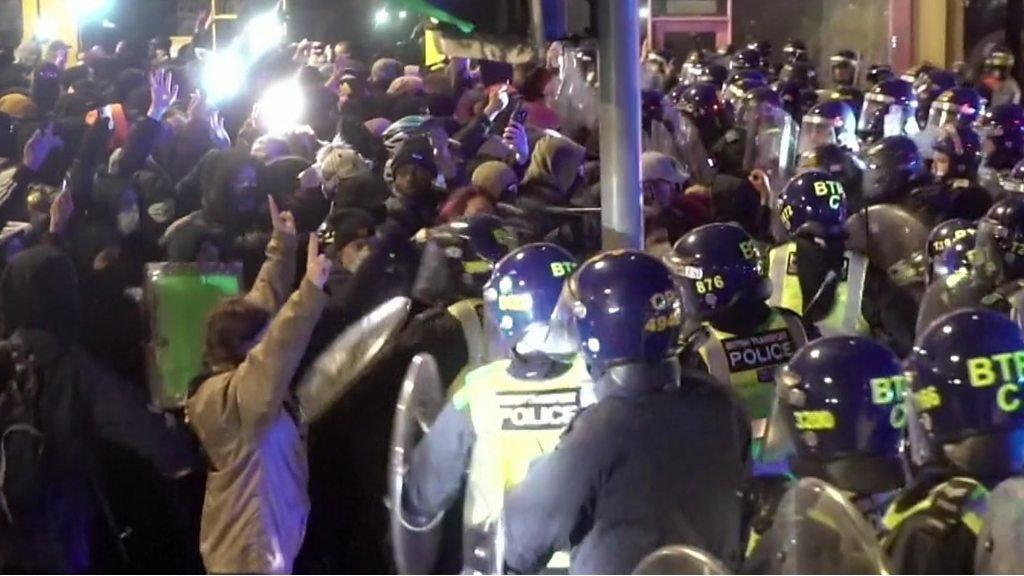
- Published21 March 2021
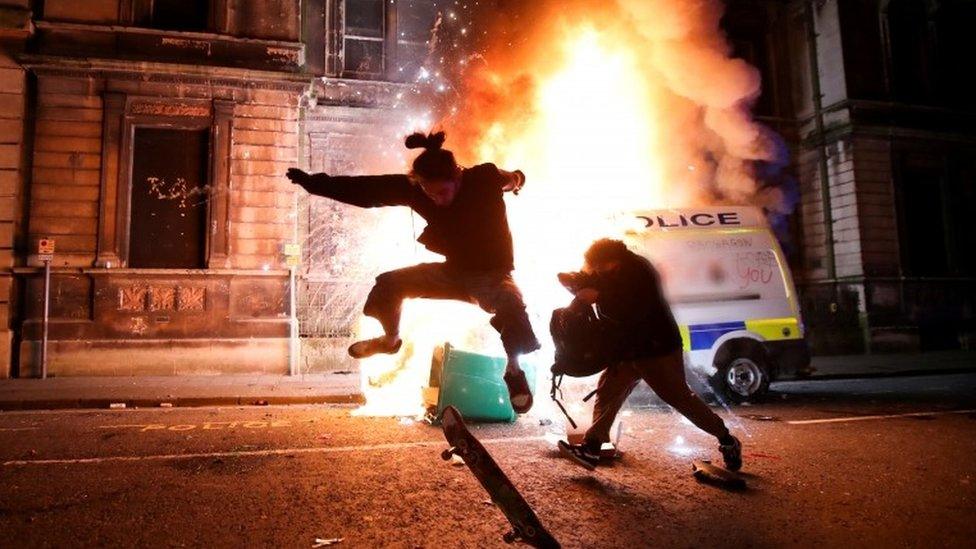
- Published30 March 2021
